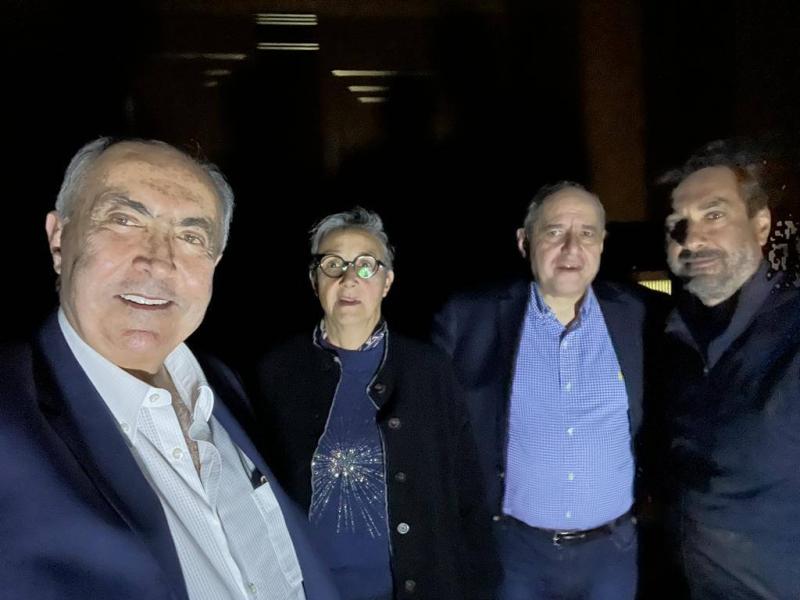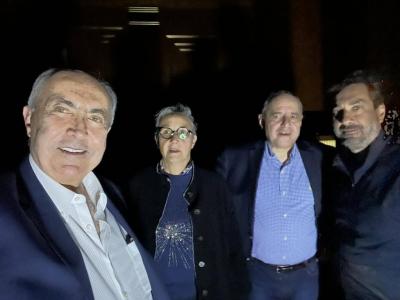There is no doubt that the sit-in initiated by some reformist deputies has added a new file to the list of ongoing issues, as it has become a topic of discussion between those who condemned the step for a thousand reasons and those who welcomed it, along with those searching for any misstep to defame its organizers through social media or other means. However, no one has yet taken the initiative to provide any idea or proposal to develop the action and benefit from it in achieving the constitutional, legal, and political goals expressed by the initiators, and what it could lead to amidst internal developments and the extent of its influence from external movements relating to the Lebanese issue.
Given the current situation, the initiators have expressed a set of constitutional articles that should introduce the eleven sessions leading to the presidential election as stipulated, which specify the procedure to be followed for electing a president once the presidential seat is vacant for any reason. Once again, the constitutional chaos that recurs at the end of each presidential term has turned the reformist deputies' step into a new material measured by political rather than constitutional or legal criteria. Therefore, it has opened the door to a new set of constitutional interpretations that cannot yield any results from discussions, likely escalating tensions instead.
The parliamentary experience we are dealing with is unprecedented in the parliament and must be assessed against a set of lost criteria to keep it an event that attracts reactions inside and outside the hall. It may have sparked popular reactions observed in various areas, whether in the capital or across Lebanese regions. Following the reactions that started last Thursday afternoon, no party has recorded any initiative that could lend the expected momentum to the sit-in. Some believe there is still time to think about how it can be developed. The protesters do not intend to give up quickly and plan to remain in the hall, having taken measures that suggest the sit-in will be prolonged, awaiting what ideas might emerge to elevate it, whether it culminates in their objective (despite the challenging nature of the task) or is ultimately abandoned.
Between these two contradictory options, there has yet to appear anyone capable of enhancing the step to give it the deserved momentum. The actions taken by some deputies from opposition blocs, independents, and certain parties have not resulted in any practical steps that can be undertaken. All of this is occurring in an atmosphere suggesting that supporters of the other team, who dismiss the initiative within their circles, remain wary of a programmed attack on it and its organizers, fearing that it might evoke adverse reactions externally before domestically, leading to its amplification and giving it implications that could make it more effective and serious.
Thus, in the political salons of the groups opposing the initiative, there are more questions lingering, and they are still awaiting answers, including discussions about the potential for diplomatic support at upcoming events in several capitals, which could give it dimensions that might harm the other team, who cling to the white votes, names, or scattered slogans that filled the ballot box before the quorum was interrupted, indifferent to the other positions that are competent in electing credible candidates with no political, constitutional, or legal doubt. This should not be dismissed when categorizing voided ballots versus those acquired by the Speaker of the Parliament with constitutional legitimacy, as he refuses to recognize some slogans as valid, categorizing them as void, while granting others the right to gain a moral status acceptable in the comparative framework that ends the sorting process at the close of each session before the quorum is interrupted and the record is closed.
In any case, in light of this panoramic picture, it is impossible to predict what the coming days will hold while awaiting any step the Speaker of Parliament might take. The key to any change happening in the Parliament hall does not belong to anyone but him. If he calls for an electoral session, as some believe might happen before next Thursday, it could mark a new direction and be a fundamental development in the course of the sit-in, except for that which leads to electing the future president. Thus, what is happening in Martyr's Square has added a controversial file to other ongoing files, with the concern that stakeholders may become preoccupied and forget that the price of a gasoline can has approached one million Lebanese pounds, and that the price of bread is about to lead to renewed queues at bakeries after gas stations have relieved that burden.
As for medicines, the cost of electricity distributed between the new fees set by Electricite du Liban, private generators, healthcare, and the fate of the academic year, all are left to fate amidst the incapacity of the concerned ministers to move past the principle of complaints that testify to their persistent inability to resolve any of these issues, along with the government collectively seeking an illusory victory for its head whenever he manages to gather them, turning it into a battleground among members of the same household with no results reflected on the overall situation in the country.




